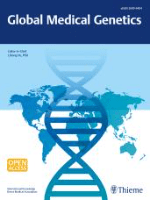
MUTATION RESEARCH-REVIEWS IN MUTATION RESEARCH
metrics 2024
Fostering Insights into Genetic Mutations and Their Effects
Introduction
MUTATION RESEARCH-REVIEWS IN MUTATION RESEARCH, published by Elsevier, stands as a premier journal in the fields of Genetics and Health, Toxicology and Mutagenesis, boasting a Q1 ranking in both categories for 2023. With an impressive impact factor and rigorous peer-review process, this journal serves as a vital platform for disseminating cutting-edge research and comprehensive reviews regarding the implications of genetic mutations and related health effects. Established in the Netherlands, it has evolved from its inception in the early 1990s to become an essential resource for researchers, professionals, and students alike, facilitating advancements in the understanding of mutation research. Despite not offering an open-access model, the journal ensures a wide reach through institutional subscriptions, emphasizing its commitment to fostering scholarly dialogue and promoting significant findings within the scientific community.
Metrics 2024
 1.78
1.78 6.40
6.40 6.40
6.40 139
139Metrics History
Rank 2024
Scopus
IF (Web Of Science)
JCI (Web Of Science)
Quartile History
Similar Journals

EUROPEAN JOURNAL OF HUMAN GENETICS
Connecting Researchers in the Field of Human GeneticsThe EUROPEAN JOURNAL OF HUMAN GENETICS, published by SpringerNature, stands as a preeminent platform in the field of genetics and clinical genetics. Established in 1993, this prestigious journal, with an ISSN of 1018-4813 and an E-ISSN of 1476-5438, has consistently maintained its position in the Q1 quartile for both Genetics and Clinical Genetics categories as of 2023, reflecting its significant contributions to the field. Its impact is further underscored by its impressive Scopus rankings, placing it in the 92nd percentile among clinical genetics journals. The journal aims to disseminate cutting-edge research, case studies, and reviews that advance our understanding of human genetics, promoting collaboration and innovation among researchers, professionals, and students alike. While it does not currently offer open access, the journal provides substantial value through its rigorous peer review process and commitment to quality. As it continues to shape the future of genetic research through 2024 and beyond, the EUROPEAN JOURNAL OF HUMAN GENETICS remains an essential resource for those dedicated to exploring the complexities of human heredity.

CURRENT GENETICS
Connecting Ideas, Transforming GeneticsCURRENT GENETICS is a prestigious journal published by SPRINGER, dedicated to advancing the field of genetics through the dissemination of high-quality research. With a notable impact factor and ranking in the Q2 category for both Genetics and Medicine (miscellaneous) as of 2023, it firmly establishes itself as a significant resource for the academic community. The journal’s comprehensive scope explores the latest findings in genetic research, along with accompanying interdisciplinary studies, providing a platform for researchers to share innovative ideas and methodologies. ISSN: 0172-8083, E-ISSN: 1432-0983, stands testament to its commitment to scholarly excellence. While Open Access options are not currently available, CURRENT GENETICS remains accessible to a broad audience, promoting a rich exchange of knowledge that supports the vast and evolving discipline of genetics. Since its inception in 1979 and through its converged years till 2024, this journal has played a crucial role in confronting scientific challenges and promoting advancements in genomic medicine and molecular biology. As such, it is an essential read for researchers, professionals, and students keen to remain at the forefront of genetic research.

GENES CHROMOSOMES & CANCER
Advancing Cancer Research Through Genetic Insights.GENES CHROMOSOMES & CANCER, published by Wiley, is a premier journal in the intertwined fields of cancer research and genetics. With an ISSN of 1045-2257 and an e-ISSN of 1098-2264, this journal has been a significant outlet for innovative research since its inception in 1989, continuing through to 2024. Positioned in the Q2 quartile of both Cancer Research and Genetics categories in 2023, it reflects a strong impact in the scientific community, as evidenced by its Scopus rankings—99th in Genetics and 83rd in Cancer Research. Though it does not provide open access options, GENES CHROMOSOMES & CANCER offers valuable insights that foster collaboration and discovery among researchers, professionals, and students dedicated to understanding the genetic underpinnings of cancer. With its reputable standing, this journal is a vital resource for those aspiring to contribute meaningful advancements in cancer genetics and therapeutic interventions.

ARCHIVES OF TOXICOLOGY
Transforming Knowledge into Public Health SolutionsARCHIVES OF TOXICOLOGY is a prestigious journal published by Springer Heidelberg, dedicated to advancing research in the field of toxicology and related disciplines. With a distinguished history dating back to 1930, this journal has continuously provided vital insights and groundbreaking studies, making it a cornerstone in the areas of health, toxicology, and medicine. Recognized for its high impact, it occupies a top-ranking position in Scopus, with remarkable quartile placements in 2023, categorizing it as Q1 in Health, Toxicology and Mutagenesis, and Q1 in Medicine (Miscellaneous). The journal highlights critical research and innovative methodologies, appealing to a diverse audience of researchers, professionals, and students committed to understanding the complexities of toxic substances and their implications for public health and environmental safety. The journal does not currently offer open access, allowing for a more traditional but rigorous peer-review process that ensures the quality and integrity of every published article. Join the global discourse in toxicological science with ARCHIVES OF TOXICOLOGY, where every contribution furthers the understanding of safety and toxicity in our world.

Global Medical Genetics
Exploring the Intersection of Genetics and HealthcareGlobal Medical Genetics is a premier open-access journal dedicated to advancing the field of medical genetics. Published by GEORG THIEME VERLAG KG, this journal has been providing a dynamic platform for disseminating cutting-edge research and clinical findings since its inception in 2020. With the ISSN 2699-9404, it serves as an essential resource for researchers, healthcare professionals, and students who seek to explore the complex interplay between genetics and medicine. The journal aims to foster collaboration and innovation in the genetics community, addressing a diverse range of topics from genetic disorders to the application of genomics in personalized medicine. By providing open access to its content, Global Medical Genetics enhances knowledge sharing and accelerates advancements in healthcare, making it a vital asset for anyone invested in the future of genetics.

MUTATION RESEARCH-FUNDAMENTAL AND MOLECULAR MECHANISMS OF MUTAGENESIS
Illuminating the Pathways of Genetic ChangeMUTATION RESEARCH - FUNDAMENTAL AND MOLECULAR MECHANISMS OF MUTAGENESIS is a premier peer-reviewed journal published by Elsevier, dedicated to advancing the understanding of mutagenesis and its broader implications in genetics, health, and molecular biology. With an impressive converged publication history from 1964 to 2024, this journal provides a vital platform for the dissemination of high-quality research findings, contributing significantly to the field's knowledge base. Indexed in Scopus, it holds a Category Quartile ranking of Q3 in Genetics and Q2 in Health, Toxicology, and Mutagenesis, further underscoring its relevance and stature. Access options are available, catering to a diverse audience of researchers, professionals, and students eager to stay informed on the latest developments in mutagenesis research. By bridging experimental studies and theoretical frameworks, the journal plays a crucial role in exploring the fundamental mechanisms underlying genetic mutations and their effects on human health and the environment.

Gene Reports
Connecting Basic Research to Real-World ApplicationsGene Reports is a prominent academic journal published by Elsevier that focuses on the rapidly evolving field of genetics. Launched in 2015, this journal serves as a pivotal platform for the dissemination of cutting-edge research, bridging the gap between basic and applied genetics studies. Although it currently holds a Q4 ranking in the Genetics category and stands at the 248th position out of 347 in Scopus rankings, its potential for growth is significant given the increasing interest in genetic research across various disciplines. With an E-ISSN of 2452-0144, Gene Reports aims to provide open access to original research articles, reviews, and short communications that advance the collective understanding of genetic mechanisms and their applications. As a publication that continues to shape the future of genetics, it is an essential resource for researchers, professionals, and students seeking to stay informed about the latest developments in this crucial field.

GENOME RESEARCH
Exploring the Frontiers of Genetic ScienceGenome Research, published by Cold Spring Harbor Laboratory Press, stands as a premier journal in the field of genetics, featuring rigorous peer-reviewed research that explores the complexities of genome organization and function. With an impressive Q1 ranking in both Genetics and Clinical Genetics according to the 2023 category quartiles, this journal effectively bridges the gap between fundamental genetic science and its clinical applications. Its significance is further highlighted by its Scopus rankings, where it ranks #6 out of 99 in Clinical Genetics and #27 out of 347 in Biochemistry, Genetics, and Molecular Biology, showcasing its broad influence and access to cutting-edge discoveries. Researchers and professionals can look forward to a diverse array of articles that cover genomic technologies, bioinformatics, and translational genomics. Although not currently open access, the wealth of information available in each issue makes it an invaluable resource for anyone engaged in genetic research and applications.

Molecular Syndromology
Bridging Molecular Insights with Clinical ApplicationsMolecular Syndromology is a premier journal focused on the intricate connections between molecular genetics and syndromology, fostering discussions that advance our understanding of genetic disorders and their clinical implications. Published by KARGER, a distinguished name in medical and scientific publishing, this journal serves as a valuable platform for researchers, clinicians, and students in the field of genetics. With its ISSN 1661-8769 and E-ISSN 1661-8777, the journal has gained recognition in its category, currently positioned in the Q4 quartile for both genetic and clinical genetics disciplines according to the latest metrics. Despite being indexed lower in Scopus rankings, it addresses crucial gaps in research and offers open access options that enhance visibility and dissemination of knowledge. As it continues to converge from 2010 to 2024, Molecular Syndromology aims to bridge the gap between molecular research and its clinical applications, making a significant impact in the evolving landscape of genetic medicine.

Application of Clinical Genetics
Elevating Standards in Clinical Genetics ScholarshipApplication of Clinical Genetics is a premier open-access journal published by Dove Medical Press Ltd., dedicated to advancing the field of clinical genetics since its inception in 2008. Based in New Zealand, this journal has established itself as a significant resource for researchers, clinicians, and students alike, contributing to the body of knowledge in both genetic medicine and clinical applications. With an impact factor reflecting its contributions to the field, the journal holds positions in the Q2 and Q3 quartiles of the 2023 Genetics categories, showcasing its relevance and scientific merit. Furthermore, it ranks #43 out of 99 in Clinical Genetics and #153 out of 347 in Biochemistry, Genetics, and Molecular Biology, indicating robust performance amongst its peers. The journal’s broad scope, encompassing various aspects of clinical genetics, ensures that it remains at the forefront of critical discussions, innovative research, and applications essential for the progression of personalized medicine. Researchers and professionals are encouraged to explore its openly accessible content that fosters collaboration and the sharing of knowledge in this dynamic and rapidly evolving field.